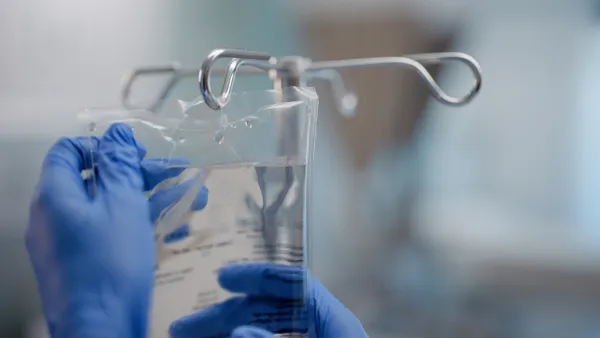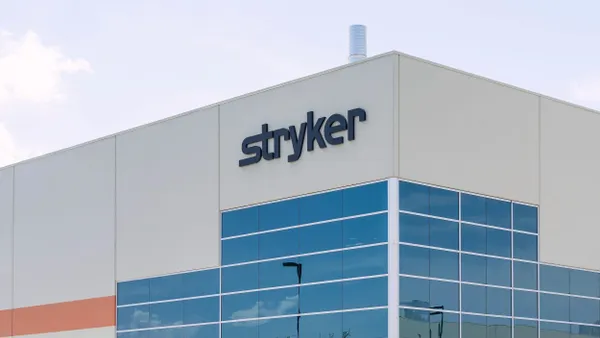Dive Brief:
- Apreo Health has raised $130 million to fund a pivotal trial and early commercialization of a device for treating severe emphysema, the company said Thursday.
- If approved, the device will compete with Pulmonx’s Zephyr Valve. Apreo has designed its device to work in a broader patient population than Zephyr and has seen a lower rate of collapsed lungs than its rival in studies to date.
- Physicians implant Apreo’s device using a bronchoscope. The venture capital wing of Intuitive Surgical, which sells a robotic bronchoscopy platform, is among the investors in Apreo.
Dive Insight:
Patients with emphysema, a severe form of chronic obstructive pulmonary disease, can suffer damage to their lung’s air sacs. The damage can cause air to become trapped and the lungs to expand beyond their normal size, a condition called hyperinflation that is associated with poor exercise capacity, diminished quality of life and other negative outcomes.
Apreo is developing its Breathe Airway Scaffold to release trapped air and relieve hyperinflation. When implanted, the scaffolds expand to open and reinforce the patient’s airways. Apreo designed the device to allow trapped air to leave via the airways, thereby reducing hyperinflation and alleviating symptoms.
The company generated clinical data to support the device in two early-phase trials. A pooled analysis of the 60 emphysema patients in the studies linked the implant to statistically significant improvements in residual volume, a measure of air trapping, three and six months after treatment. Apreo also reported improvements on measures of lung function, exercise capacity and quality of life.
No patients had a pneumothorax, the medical term for a collapsed lung, during the follow-up period. The finding provides a potential advantage over Pulmonx’s Zephyr. The valve, which was approved by the Food and Drug Administration in 2018, was associated with a 26.6% rate of pneumothorax in a study.
The Zephyr study limited enrollment to patients with little or no collateral ventilation, meaning they lack airways that bypass the normal airflow routes. Apreo’s first and second studies lacked that restriction. The authors of the paper about Apreo’s trials said the dependence on emphysema distribution and the degree of collateral ventilation means only a small proportion of patients benefit from existing devices.
Apreo started a pivotal trial of its scaffold last month. The study is designed to enroll 250 patients to test if the device is better than current optimal medical management at improving a lung function measure.
New investors Bain Capital Life Sciences and Norwest are supporting Apreo’s trial by co-leading the $130 million investment in the company. Fellow new investors F-Prime and Intuitive Ventures, the investment wing of Intuitive Surgical, also participated. Returning investors Lightstone Ventures and Santé Ventures contributed as well.













